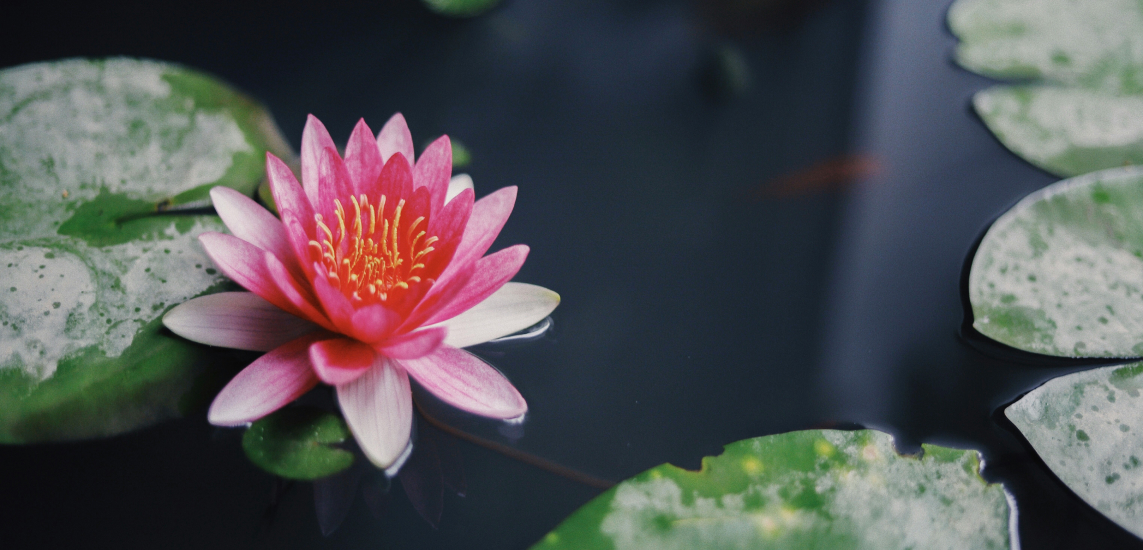Living with obsessive-compulsive disorder (OCD) can feel overwhelming, but what if there was a way to calm your mind and anchor yourself in the present moment? Mindfulness offers a gentle and accessible approach, allowing you to observe your thoughts and sensations without judgment. As Loula Love, a meditation teacher who has personally navigated OCD, shares:
“The breath is a constant that we all have the joy of participating in, thus it is a lovely tool available at any moment.”
Join Loula Love as she guides you through a meditation designed specifically for those experiencing OCD. Her gentle guidance emphasizes the importance of non-judgment, awareness, and staying grounded in the here and now—simple yet transformative practices that can offer great relief.
Inspiration behind the Mindful Meditation For OCD
Loula’s journey into meditation was driven by a desire to find deeper healing beyond traditional methods. After struggling with her own OCD tendencies and witnessing how conventional treatment had its limits, she sought a different path. As Loula explains:
“I am grateful to have been led to the power of meditation from my experience with the Western Medicine industry. I found doctors and pharmaceuticals to be limited in their help with my struggles.”
This inspired her to create meditations that offer a space for compassion and non-judgment, especially for those grappling with mental health challenges.
This particular meditation emerged as a response to a listener’s request, blending Loula’s personal insights with practical mindfulness strategies. She reflects:
“I’ve noticed that underneath the layer of obsessive thoughts is actually a profound amount of judgment regarding not only yourself but of others. If you step into a state of allowance, a freedom is discovered that was hidden in plain sight.”
A 10-minute mindfulness meditation to ease OCD symptoms
This 10-minute guided meditation focuses on mindfulness techniques aimed at managing the intrusive thoughts and compulsions commonly associated with OCD. By bringing attention to the breath and practicing non-judgmental observation, you can create a space where thoughts are just thoughts, not directives that must be followed.
As Loula explains:
“Mindfulness is not complicated and can be done anywhere at any time. It is connecting to the present moment, fully and without any judgment.”
This meditation encourages you to bring a kind, non-critical awareness to each moment, helping you stay grounded even when anxiety arises.
For more mindfulness meditations like this, explore the largest library of free guided meditations on Insight Timer.
Mindfulness meditation for OCD guided meditation script
Step 1: Find a comfortable position and settle in
Start by finding a comfortable position, either sitting or lying down. Make sure you’re in a place where you can close your eyes and relax without distractions. Take a moment to settle in, adjusting your body until you find a position that feels right. Once you’re comfortable, allow yourself to release into stillness, feeling supported by the surface beneath you.
Step 2: Focus on your breath
Close your eyes and bring your attention to your breath. Feel the gentle rise and fall of your belly as you breathe in and out. Let your breathing deepen naturally, but without forcing it—just allow it to happen. Whenever you notice that your mind has wandered away from the breath, gently bring it back. This is a key part of the practice: recognizing when your mind has drifted and guiding it back to the present moment.
Step 3: Embrace non-judgmental awareness
As thoughts arise, you might notice judgments about how well you’re focusing or whether you’re doing the meditation “right.” Loula emphasizes the importance of non-judgment:
“It is YOU that gets to say how you see and perceive the world. It is YOU that puts a label on anything and everything.”
Each time your mind wanders, gently acknowledge it and then bring your attention back to the breath. Let go of the urge to judge yourself—this practice is about observing, not evaluating.
Step 4: Visualize the breath like ocean waves
To deepen your focus, imagine your breath as ocean waves. Feel each inhale as a wave gently rolling onto the shore and each exhale as it flows back out to sea. Loula chose this metaphor because, “The ocean is a perfect place to take the listener because it activates the senses—sight, sound, smells, and sensations of touch.” This rhythmic visualization can help you stay connected to the present moment, soothing any anxieties that arise.
Step 5: Resist compulsive urges
Loula acknowledges that dealing with OCD can be challenging, especially when compulsive urges arise. She advises,
“Do not act on your compulsions whatever chance you get. Stay with your feelings.”
When a compulsive thought or urge surfaces, resist the temptation to ritualize it. Instead, use your breath as an anchor, breathing into any anxiety or discomfort without trying to change it. By facing these feelings directly, you diminish their power over you.
Step 6: Label and observe anxiety
When feelings of anxiety come up, gently label them without judgment. You might say to yourself, “I’m noticing anxiety,” and then shift your focus back to your breath. Loula encourages a sense of curiosity, inviting you to observe the sensations of anxiety with openness: “What does anxiety really feel like? Is it in your head? Is it in your chest?” This exploration helps you become more familiar with your emotional landscape, reducing the intensity of the anxiety over time.
Step 7: Breathe into your feelings
Allow your breath to be a tool for soothing any discomfort. Feel the air moving through your body, bringing fresh energy in and releasing tension with each exhale. Each time you notice anxiety or a compulsion, come back to the breath and use it as a way to ground yourself in the present moment. Loula reminds us:
“Being aware is your tool for a better life. The more awareness that you have, the more peace you gain.”
Step 8: Practice acceptance and self-compassion
Towards the end of the meditation, practice acceptance by embracing any feelings you have—whether pleasant, unpleasant, or neutral. Instead of trying to change or eliminate discomfort, let yourself be with it. This compassionate acceptance is central to mindfulness, helping you relate to your thoughts and emotions with kindness. Loula concludes with encouragement, reminding you that with consistent practice, it becomes easier, and the relief from OCD symptoms grows.
This guided meditation script was adapted from Loula Love’s Mindful Meditation For OCD.
Tips for beginners from Loula Love
Loula acknowledges that starting a meditation practice can be daunting, especially for those who are new to mindfulness. She suggests approaching the practice with patience, likening the experience to watching a movie unfold without getting lost in the story. This shift in perspective helps to create a sense of spaciousness and allows you to view your thoughts with less attachment.
For those who are struggling, Loula offers gentle advice:
“Simply accept that you are here and now, experiencing whatever is happening to you as the pure awareness of it.”
She emphasizes the importance of self-compassion and encourages you to “be like a director watching their film—observing, not judging.”
Take a moment to reflect
Reflection is a powerful way to deepen your practice and solidify what you’ve learned. After completing the meditation, consider taking a few moments to answer these questions:
- How did it feel to notice your thoughts without judgment? Were there any surprises?
- What sensations did you observe in your body during moments of anxiety or compulsion?
- Were there times when you found it challenging to return to your breath? How did you handle those moments?
- How did the visualization of the breath as ocean waves affect your ability to stay present?
Consider journaling your thoughts or sharing them with a trusted friend or support group. These reflections can help reinforce the practice and track your progress over time.
Why Loula Love likes meditating with Insight Timer
For Loula Love, Insight Timer has become a place of both teaching and healing. She shares:
“Insight Timer is my refuge for peace and support.”
The app has allowed her to connect with a global audience, and she is continually inspired by the feedback and gratitude from her listeners. Loula sees this connection as a reminder that we are all “like a web of aliveness,” supporting one another through shared experiences and collective healing.
Explore more of Loula’s powerful meditations on Insight Timer’s free meditation app, and join a worldwide community dedicated to personal growth and mindfulness.
Experience deep mindfulness and presence with Insight Timer
If you’re looking to explore more mindfulness meditations that focus on mental well-being and anxiety reduction, Insight Timer has an abundance of resources. Whether you’re interested in guided sessions, calming meditation music, or tools to support your meditation journey, there’s something for everyone.
You can also support your meditation practice by joining one of our many groups. Connect with like-minded practitioners and share the healing effects of self-awareness meditations.







